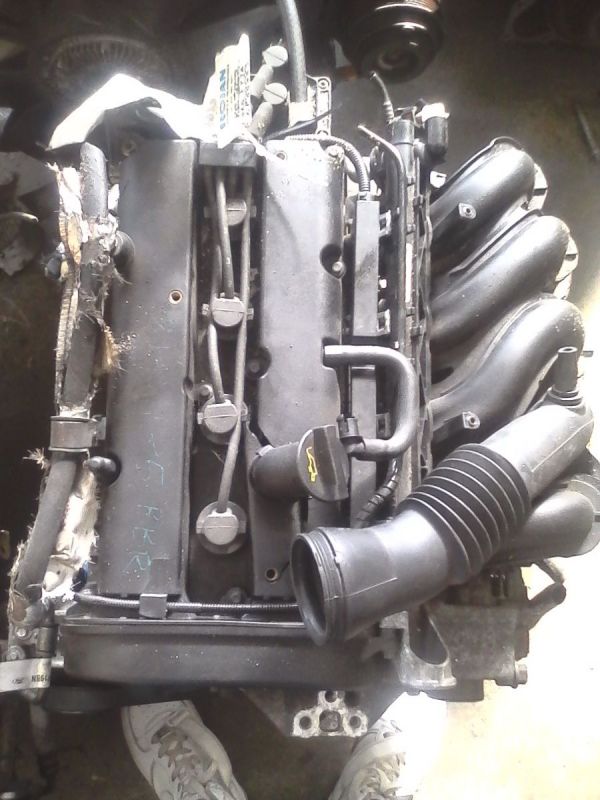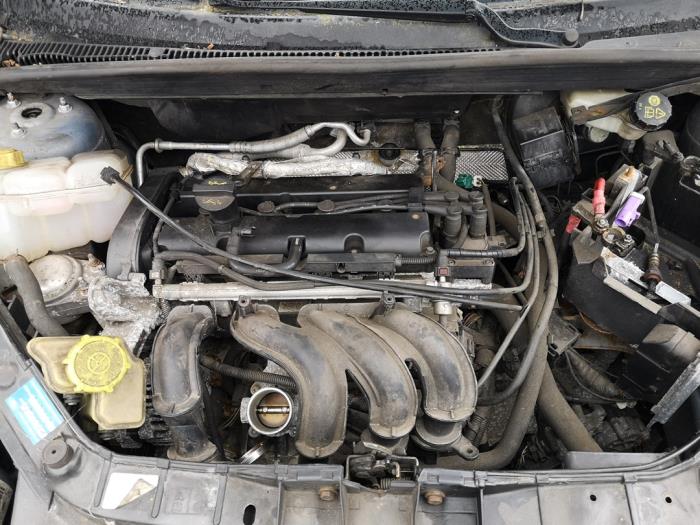Top Ford Fiesta Engine Repairs to Avoid Costly Damage
Top Ford Fiesta Engine Repairs to Avoid Costly Damage
Blog Article
Unlocking the Power of Engines: A Comprehensive Guide to Performance and Performance
Understanding the intricate technicians of engines is crucial for both efficiency enthusiasts and day-to-day vehicle drivers. The solutions might redefine our technique to engine efficiency and efficiency in methods that are both informing and essential.
Recognizing Engine Fundamentals
What comprises the basic mechanics of an engine? At its core, an engine is a machine designed to convert gas into mechanical power through a collection of regulated surges or burning processes.
The crankshaft then transforms this straight movement right into rotational energy, which eventually powers the car. The camshaft regulates the opening and closing of the valves, managing the consumption of air and gas and the expulsion of exhaust gases. Furthermore, the engine depends on a meticulously adjusted fuel-air combination, ignition system, and cooling down system to guarantee optimal efficiency and effectiveness.
Comprehending engine fundamentals likewise involves identifying the relevance of engine cycles, such as the four-stroke cycle, that includes intake, exhaust, power, and compression strokes. Each phase is vital in guaranteeing the engine functions smoothly and successfully. Mastery of these fundamental auto mechanics prepares for exploring more complex engine characteristics and efficiency metrics, important for optimizing both power output and effectiveness.
Trick Efficiency Metrics
Trick efficiency metrics are essential for evaluating an engine's effectiveness and power output, supplying beneficial understandings for both suppliers and consumers. These metrics act as standards for engine performance, permitting informed choices in manufacturing, acquiring, and layout.
One of the key metrics is horsepower, which evaluates the engine's capability to perform work over time. Torque, gauged in pound-feet, is another important metric that suggests the engine's rotational pressure, straight affecting velocity and towing ability. Gas effectiveness, normally determined in miles per gallon (MPG) or litres per 100 kilometers (L/100km), evaluates exactly how efficiently the engine converts gas right into movement, impacting ecological factors to consider and operational prices.
Additionally, thermal efficiency actions how well an engine converts gas power into useful work, exposing insights into power losses mostly with heat. Emission degrees, including carbon dioxide and NOx, are also critical, showing the engine's ecological impact and compliance with regulative criteria.

Tuning Techniques for Performance
Tuning strategies play a significant duty in enhancing engine performance by maximizing performance metrics recognized in earlier discussions (ford fiesta engine). Various approaches exist to tweak an engine, each contributing to improved fuel economy and decreased browse this site discharges
One efficient method is adjusting the air-fuel proportion, making sure the engine operates within the optimum combustion regime. A leaner blend can enhance fuel efficiency, however it needs to be balanced to protect against misfires or engine knock. Additionally, reprogramming the engine monitoring system can rectify parameters such as ignition timing, which better boosts effectiveness while preserving power outcome.
Another crucial technique involves modifying the intake and exhaust systems. Upgrading to high-performance air filters and exhaust headers can reduce back stress, assisting in much better airflow. This permits the engine to take a breath more easily, causing enhanced combustion efficiency.
Moreover, the implementation of innovative adjusting tools, like dyno testing, offers accurate data that allows targeted modifications. Consistently monitoring these performance metrics guarantees that adjusting initiatives produce the wanted effectiveness outcomes. Jointly, these techniques not only strengthen engine efficiency however also contribute to long-term sustainability in engine operations.
Upkeep for Optimum Efficiency
Normal engine maintenance is essential for attaining optimum performance and durability. A well-kept engine not just operates successfully yet likewise lessens the threat of costly repair work and break downs. Key components calling for regular interest consist of oil, filters, belts, and spark plugs.
Transforming the engine oil at advised periods is critical, as you can check here oil lubricates relocating parts and protects against getting too hot. Likewise, replacing oil and air filters ensures that impurities do not impair engine function. Disregarding these elements can bring about lowered effectiveness and prospective engine damages.
In addition, inspecting and replacing worn belts and hoses is crucial to avoid sudden failings. Timing belts, specifically, must be changed according to the supplier's timetable to stay clear of tragic engine damage.
Ignition system must additionally be inspected and changed as needed, since they play a critical duty in ignition and fuel performance.
Future Fads in Engine Modern Technology
Welcoming advancements in modern technology, the future of engine layout is positioned to transform efficiency and efficiency across different applications. One of one of the most significant trends is the change toward electrification. Hybrid and fully electrical powertrains are coming to be progressively traditional, supplying minimized exhausts and improved gas efficiency. This shift is not merely a trend but a need driven by regulative pressures and customer need for lasting services.
Additionally, developments in products science are leading to lighter, more powerful elements that enhance engine efficiency while reducing power consumption. Advanced production techniques, such as 3D printing, enable the production of complex geometries that boost air flow Our site and thermal management, hence optimizing burning processes.
Furthermore, the assimilation of synthetic knowledge and machine discovering is set to change engine diagnostics and efficiency tuning. These innovations can assess large quantities of information in real time, allowing anticipating upkeep and tailored performance improvements.
Verdict
In final thought, unlocking the power of engines requires a complete understanding of their auto mechanics and efficiency metrics. Executing efficient adjusting techniques and sticking to routine upkeep methods significantly improve engine abilities.
In addition, the engine depends on a very carefully adjusted fuel-air combination, ignition system, and cooling down system to guarantee optimum performance and efficiency.
Recognizing engine basics also entails acknowledging the relevance of engine cycles, such as the four-stroke cycle, which includes intake, exhaust, power, and compression strokes. Mastery of these fundamental auto mechanics lays the foundation for discovering more complicated engine characteristics and efficiency metrics, important for optimizing both power outcome and efficiency.

Welcoming developments in innovation, the future of engine layout is poised to transform performance and performance across various applications.
Report this page